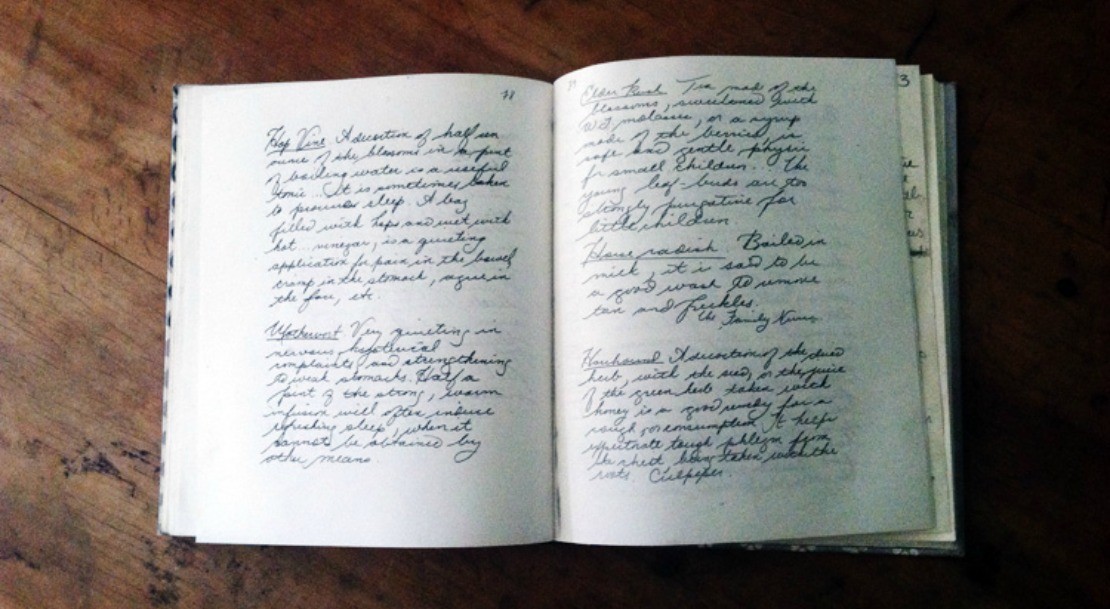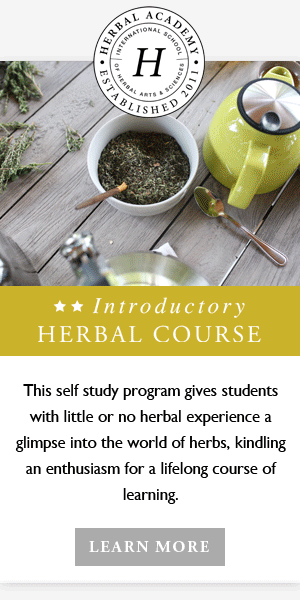
What do you know about Herbal History?
Herbalism is a practice found in every culture around the world, and in some continents up to 80% of people still used herbalism as their primary form of health care. Herbalists today are able to draw from Native American, Traditional Chinese Medicine, Ayurveda, Siddha, Middle Eastern, the Eclectics, South American, Celtic, and many other herbal traditions with a rich tapestry of history, lore, practice, and philosophy. Along with an appreciation and respect for clinical research and modern knowledge, the Herbal Academy remains ever grateful to our herbal forbearers and honors the wisdom inherent in traditional use of plants.
If you’re interested in learning more about herbalism, rooting and sprouting herbalists herbalists can join us in the Online Introductory Herbal Course, while budding and blossoming herbalists can dive into the Online Intermediate Herbal Course. Bring your natural curiosity and sense of wonder as we explore the medicine and healing trees and plants offer us!
Ready to test your knowledge?
Take the Herbal History Quiz!
How much do you know about the history of herbs? Take this quiz to test your knowledge!

It is thought that the earliest written records of herbalism date from?

Archeological evidence suggests herbs have been used since at least:

According to Greek myth, what herb did Achilles carry into battle?

What two herbs were discovered in the tooth tartar in ancient Neanderthal remains?

The Doctrine of Signatures is what?

About what percentage of modern pharmaceuticals are derived from herbs?

Of the culinary herbs below (which are also medicinal), which is considered to be the world’s most popular herb?

What popular “cold and flu” herb was originally used by the American First Nations people for its general medicinal properties as well as a treatment for snake bite?
Let’s Review the Quiz!
Question:
It is thought that the earliest written records of herbalism date from?
Correct Answer: 5000 years ago
Additional Information: The oldest written record of medicinal plants was discovered on clay tablets over 5000 years old, created by the Sumerians in ancient Mesopotamia (Iraq). Read about the history of herbalism here.
Question:
Archeological evidence suggests herbs have been used since at least:
Correct Answer: 60,000 years ago
Additional Information: There is indeed archaeological evidence suggesting that people were using medicinal plants in the Paleolithic Era, 60,000 years ago. See question #4 for more details!
Question:
According to Greek myth, what herb did Achilles carry into battle?
Correct Answer: Yarrow
Additional Information: Yarrow takes its Latin name Achillea from the mythical Greek hero Achilles, who used yarrow to heal the wounds of his friends in battle. Yarrow’s common names include soldiers’ woundwort, staunch weed, nosebleed, woundwort, and carpenter’s weed, nodding to its traditional uses.
Question:
What two herbs were discovered in the tooth tartar in ancient Neanderthal remains?
Correct Answer: Chamomile and yarrow
Additional Information: Calcified plaque was found on teeth from skeletal remains in Spain, which suggested that cave-dwelling Neanderthals consumed bitter-tasting medicinal plants such as chamomile and yarrow.
Question:
The Doctrine of Signatures is what?
Correct Answer: The notion that a plant’s appearance and/or habitat indicate which body parts or ailments it can treat
Additional Information: The medieval Doctrine of Signatures states that nature or the divine imbues plants with clues or signatures to help people find the appropriate medicine, and identifies similarities between aspects of the body and the plants that are used as medicine for those parts. For example, plants with white roots like comfrey are indicated for bones and joints, or plants with red sap are indicated for blood disorders.
Question:
About what percentage of modern pharmaceuticals are derived from herbs?
Correct Answer: 25%
Additional Information: The World Health Organization estimates that 25% of modern pharmaceuticals prescribed worldwide are derived from herbal sources. Examples include penicillin, erythromycin, aspirin, and quinine, among many others.
Question:
Of the culinary herbs below (which are also medicinal), which is considered to be the world’s most popular herb?
Correct Answer: Parsley
Additional Information: Parsley (Petroselinum crispum) is more than just a garnish! It is high in vitamins C, A and antioxidants; contains volatile oils which may protect against tumor growth; cleanses and detoxifies the liver, kidneys, and bladder; and its antimicrobial action freshens breath
Question:
What popular “cold and flu” herb was originally used by the American First Nations people for its general medicinal properties as well as a treatment for snake bite?
Correct Answer: Echinacea
Additional Information: In addition to echinacea’s long history of use as an antiviral for colds and flus, Native Americans also used it for snakebites. It is effective against the bites and stings of many venomous creatures, including snakes, spiders, scorpions, and bees. Echinacea was popularized as a snakebite remedy in the early 1900s by the Eclectic herbalists.
Score your quiz!
0 to 1 correct answers? You are a Rooting Herbalist, your path is just beginning, welcome!
You are just starting out and have taken only a couple steps into your herbal journey. You have used a few herbs like basil and cilantro, adding these culinary herbs to your pasta sauce or salsa. Who knew they can also be used medicinally! Herbalism is a new word in you dictionary, but you are interested in learning more about it and what it means!
1 to 3 correct answers? You are a Sprouting Herbalist!
You are curious about herbs and how to use them for your health, and you often wonder about the plants and weeds that grow in your backyard, but you are unsure how to use them for yourself and family. While you may have tried making your own herbal teas and homemade lotions, you don’t fully understand dosage and formulation. Herbalism might be a new word in your dictionary, but you are definitely eager to jump in and discover this “back to the roots” way of life!
4 to 7 correct answers? You are a Budding Herbalist!
You are truly passionate about herbs and eager to learn more! You have a good understanding of herbs and how to use them for yourself and others. You’ve been studying herbs on your own for some time and may have taken some classes or courses. Your passion rubs off on your family and friends. Herbalism is not just a fad for you, it’s a lifestyle! And your journey is far from over… there’s always more to learn!
8 correct answers? You are a Blossoming Herbalist!
You have a good grasp of herbs and how to use them as medicine. Your library is always expanding with new reading materials and you have been studying herbs since you can remember. Many of your friends and family come to you with questions about their health and wellness, and you are proud to be able to help them. Your passion for herbalism is ever growing andl like so many others with years of experience and education, you are mature enough to recognize that herbalism is a lifelong pursuit… so let the adventure continue!
If you’re interested in learning more about herbalism, rooting and sprouting herbalists can join us in the Online Introductory Herbal Course, while budding and blossoming herbalists can dive into the Online Intermediate Herbal Course.







